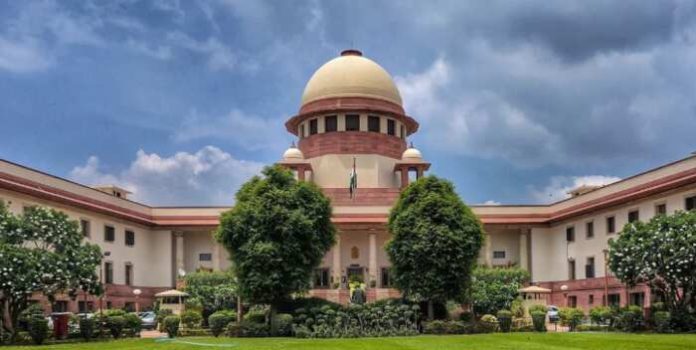Introduction
The role of the judiciary, particularly the Supreme Court, is paramount in interpreting laws, shaping jurisprudence, and setting legal precedents that guide the functioning of the legal system. In recent years, several rulings by the Supreme Court of India have significantly impacted existing legal precedents, influencing the country’s legal landscape. This paper examines the impact of these rulings on legal precedents, focusing on how they have redefined, reinforced, or overturned established legal doctrines.
The Doctrine of Constitutional Morality
One of the most significant recent developments in Indian jurisprudence is the invocation of the doctrine of “constitutional morality.” This concept, although present in earlier judgments, was brought to the forefront in cases such as Navtej Singh Johar v. Union of India (2018), which decriminalized homosexuality by reading down Section 377 of the Indian Penal Code. The court held that constitutional morality, as opposed to popular morality, should guide the interpretation of fundamental rights. This ruling not only overturned a colonial-era law but also set a precedent for future cases involving individual rights against majoritarian views.
The judgment in Indian Young Lawyers Association v. State of Kerala (2018), commonly known as the Sabarimala case, further emphasized constitutional morality. The court ruled that the practice of excluding women of menstruating age from entering the Sabarimala temple violated constitutional principles of equality and non-discrimination. These cases have established constitutional morality as a critical standard in adjudicating rights-related disputes, potentially influencing future rulings on religious freedoms, gender equality, and other fundamental rights.
The Evolution of Privacy Jurisprudence
The right to privacy, a relatively recent addition to the corpus of fundamental rights in India, was crystallized in the landmark judgment of Justice K.S. Puttaswamy v. Union of India (2017). The Supreme Court unanimously declared that the right to privacy is a fundamental right under the Indian Constitution, derived from Articles 14, 19, and 21. This ruling overruled previous decisions, such as M.P. Sharma v. Satish Chandra (1954) and Kharak Singh v. State of Uttar Pradesh (1962), which had held that the Constitution did not expressly guarantee the right to privacy.
The Puttaswamy judgment has had a profound impact on subsequent rulings. For instance, in Joseph Shine v. Union of India (2018), the Supreme Court struck down the adultery law (Section 497 of the Indian Penal Code) as unconstitutional, citing the right to privacy and the right to individual autonomy. Similarly, in Sabarimala, the court’s reasoning was partly based on the privacy rights of women. The Puttaswamy judgment has thus set a precedent for interpreting privacy expansively, with implications for cases involving surveillance, data protection, and bodily autonomy.
The Doctrine of Manifest Arbitrariness
The Supreme Court’s application of the doctrine of “manifest arbitrariness” has led to significant developments in constitutional law. This doctrine was prominently applied in Shayara Bano v. Union of India (2017), where the practice of instant triple talaq (talaq-e-biddat) was declared unconstitutional. The court held that a law or practice could be struck down if it is arbitrary, irrational, or unreasonable, thereby expanding the scope of judicial review.
This doctrine was further reinforced in Joseph Shine, where the court struck down the adultery law as arbitrary and discriminatory. The ruling emphasized that laws rooted in gender stereotypes and moral policing are incompatible with the Constitution’s guarantee of equality and personal liberty. The application of manifest arbitrariness has empowered the judiciary to scrutinize and invalidate laws that do not meet the standards of fairness and reasonableness, thereby setting a precedent for future challenges to discriminatory or outdated legislation.
The Expansion of Due Process
The concept of “due process of law,” which had traditionally been interpreted narrowly in Indian jurisprudence, has been expanded by recent Supreme Court rulings. In the Maneka Gandhi v. Union of India (1978) case, the court had established that the procedure established by law must be just, fair, and reasonable. This principle has been further developed in recent cases, such as Shayara Bano and Puttaswamy.
In Shayara Bano, the court held that the practice of instant triple talaq violated due process as it was arbitrary and unjust. Similarly, in Puttaswamy, the court emphasized that any law infringing on the right to privacy must meet the standard of due process, requiring a legitimate state interest, necessity, and proportionality. These rulings have broadened the scope of due process, ensuring that laws and state actions are subject to rigorous judicial scrutiny to protect individual rights.
Conclusion
The recent rulings of the Supreme Court have had a profound impact on legal precedents in India. The invocation of constitutional morality, the expansion of privacy rights, the application of the doctrine of manifest arbitrariness, and the broader interpretation of due process have all contributed to reshaping the legal landscape. These developments reflect the judiciary’s evolving approach to constitutional interpretation, emphasizing the protection of individual rights and the need for laws to align with contemporary values of justice, equality, and fairness. As these precedents continue to influence future cases, they will play a crucial role in shaping the direction of Indian jurisprudence.
Also Read:
Rights of undertrial prisoners in India
How To Send A Legal Notice In India


